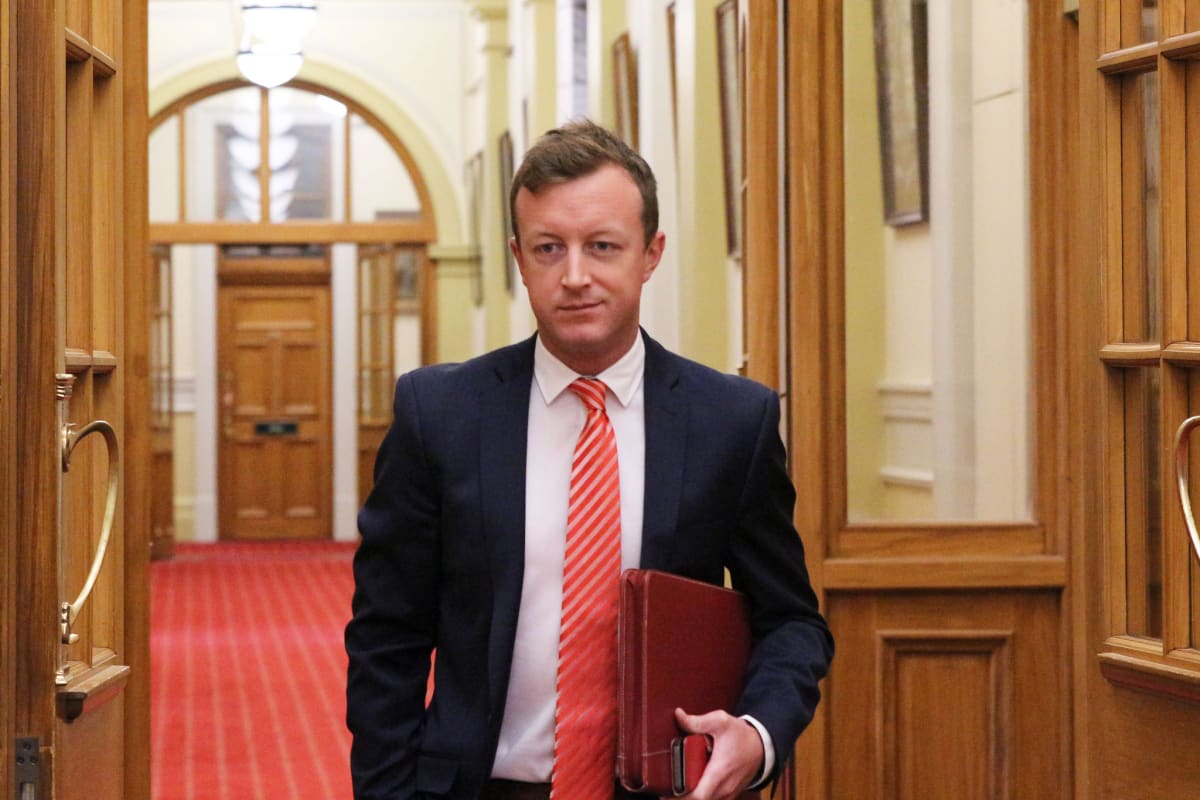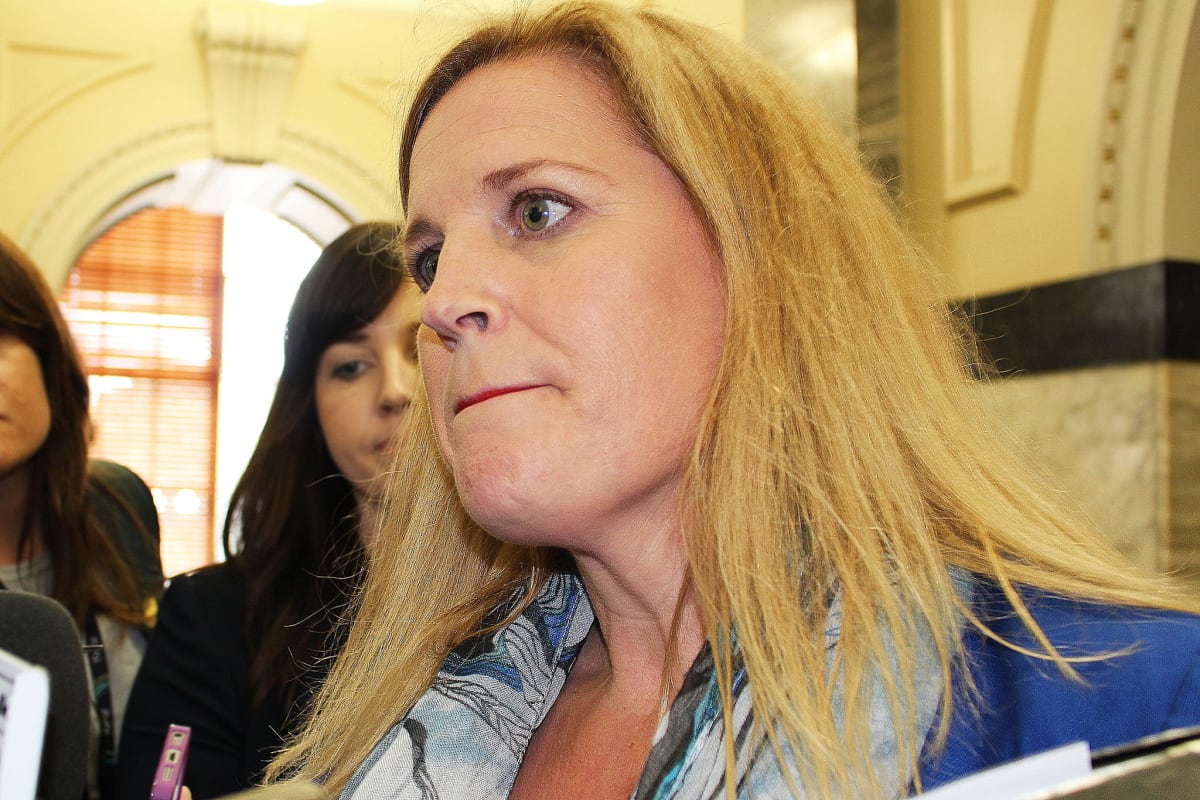
A year after a rule change allowing private members bills with good across-the-house support to bypass the biscuit tin lottery, not one single piece of legislation has prompted MPs to come together.
Call me old fashioned, but there are some ideas just so damn sensible there can surely be no reason our elected representatives wouldn’t support debating them in Parliament – on behalf of all New Zealanders, and regardless of party politics?
Compulsory lifejackets for children, for example. Or allowing a victim of family violence the automatic option of getting out of their marriage or civil union. What about giving new mums the right to three days of inpatient post-natal care, if they want? Or closing a legislative gap which at the moment allows discrimination against trans, intersex or non-binary people?
These largely uncontroversial ideas are all contained in existing proposed Members' bills patiently or impatient awaiting their turn to be drawn from the Parliamentary biscuit tin (yes, it really is a biscuit tin) so they can be debated in Parliament and maybe become law.
Until fairly recently, the members' bill process was a total lottery. If your bingo chip got drawn (yes they really do use bingo chips), your bill got debated. If not, it could languish maybe forever.
But in late 2020, without any fanfare, the parliamentary Standing Order Committee, the group that looks at the rules of Parliament, introduced a change.
Any member's bill with support from two-thirds of backbenchers (61 non-executive MPs) would automatically get introduced into Parliament, the new rule said.
This meant an MP who believed passionately in their members' bill and could persuade enough colleagues from both other parties to come on board, would at least see their bill get to first reading stage.

"It is a positive step towards encouraging members to be better parliamentarians," Speaker Trevor Mallard said at the time.
And then... nothing happened.
A year later, the number of members' bills that have bypassed the biscuit tin and been introduced into Parliament under the new rule is precisely zero.
A rule change designed, it seemed, to give MPs the opportunity to collaborate across party lines on uncontroversial but potentially important areas, has not achieved anything.
Parliamentarians are resolutely sticking to their political colours.
Take the bill that has got closest to the line - Labour MP Angie Warren-Clark's Family Proceedings (Dissolution for Family Violence) Amendment Bill. The bill allows someone to get out of a marriage or civil union if they have been the victim of family violence, rather than having to wait until they have been separated for two years.
Surely no MP can think this is a bad idea?
Yet Warren-Clark has mustered only 56 MPs in support - five short of the 61 she needs to bypass the biscuit tin. Namely, every eligible Labour, Green and ACT MP is on board; every National or Māori Party MP is not.
National MP Louise Upston’s New Zealand Public Health & Disability (3 Day Postnatal Stay) Amendment Bill has hit the same problem from the other side of the political spectrum: she has 43 supporters, being all 33 National MPs and all 10 from ACT. No one from Labour, the Greens or the Māori Party.
Upston says as soon as the new biscuit tin rules came into force last year, she sent a request to the relevant spokesperson for each of the other parties, asking to meet “at their earliest convenience” to talk about her bill.
ACT came back immediately with formal backing, and the Green Party indicated verbal support, although their MPs haven’t yet put their names up yet, Upston says.
And Labour? “I’ve discussed it several times in person with Andrew Little. I’m pretty disappointed I have yet to hear back formally from Labour.
Upston hasn’t heard from the Māori Party either, but suspects that’s more a matter of resources - there are just two MPs covering all portfolios.
Why wouldn’t Andrew Little just say: 'Why not, sounds like a reasonable idea'. It’s not as if putting your name on the bill to get it out of the biscuit tin means it gets passed.
It simply gets a first reading and then only goes to select committee if it gets support.
Or couldn’t MPs decide on their own?
“Anyone looking from the outside would think it was a no-brainer, given our levels of maternal mental health problems. But maternity care is considered a health and development issue, not a conscience issue. It’s a quirk of Parliamentary procedure,” Upston says.
That means MPs have to wait for their party spokesperson to decide their group position - and Labour has so far not given support.
“I haven’t given up hope. My offer to the Labour caucus is to support my bill.”
A "higher bar" for Labour
Newsroom asked Kieran McAnulty, Labour MP for Wairarapa and Chief Government Whip what the party’s position was on supporting member’s bills from other parties by-passing the biscuit tin.
His (written) reply was circumspect.

The process to decide on a bill bypassing the ballot must meet a higher bar than for a bill randomly pulled from the biscuit tin, he says.
“When a Labour member intends to submit a bill into the ballot it is discussed at caucus. If it is supported then all members automatically lend their support for the bill to bypass the ballot. It is then up to the member to find support from other members or parties. The fact this has not yet occurred suggests it is possible for members or a party to support the bill, but not support it to bypass the ballot.”
What if the request came from a different party?
“We would consider each request and discuss the merits of supporting the bill to be drawn and discussed without a ballot. From memory, we have only done this a couple of times. Requests for this have not been common.”

It’s a position that frustrates Louise Upston.
Her Rights for Victim of Insane Offenders Bill, introduced in 2019, got support from across the political spectrum and finally passed into law just before Christmas last year.
"If the Labour party is going to support a bill at first reading, why can’t they support it to bypass the biscuit tin?" Louise Upston, National MP
The same consensus happened with National MP Todd Muller’s sunscreen safety standards bill, which got through second reading in November unopposed.
But both MPs had to get lucky in the biscuit tin lottery before their bills could be considered.
“It’s hard to understand, if the Labour Party is going to support a bill at first reading, why can’t they support it to bypass the biscuit tin under the new standing order?" Upston says.
Kieran McAnulty isn’t ruling it out. “I’m sure there will be a bill in the future that gets this support, but I don’t believe it has happened yet.”
Ironically, McAnulty has his own members' bill sitting in the biscuit tin - a bill aiming to remove restrictions on the sale of alcohol on public holidays like Easter and Anzac Day. His proposal sits alongside a similar one from ACT’s Chris Baillie. They don’t even support each other to get their bills into the open.

National MPs' 'conscience and integrity'
Green MP Chlöe Swarbrick was a strong supporter of the 61-MP rule change, and is an outspoken advocate of politicians working together to achieve results that benefit the country.
In November last year, as the country waited to see who would replace Judith Collins at the top of the National Party, Swarbrick tweeted “Whoever the next National leader is, it’d be brilliant if they actually let their MPs exercise conscience and integrity.”
The new members' bill rule is an opportunity for MPs to take a more proactive stance on a variety of issues from gas drilling to drug reform, from domestic violence and LGBTQ discrimination, she told Newsroom some weeks later, although she said her first year as an MP had taught her how rigid the system is.
“The process of the past year has been immensely frustrating, not being able to build consensus, because MPs are constrained by political and career outcomes.”
She hoped Chris Luxon would allow his MPs to vote according to their conscience on some bills, although given that stance, her own party's lack of on-the-record formal support for Louise Upston’s post-natal stay bill is curious.
Swarbrick suggested Newsroom talk to Green MP Jan Logie about the party’s position on supporting other MPs' bills, but Logie didn’t respond to several approaches.
ACT talks up cross-party consensus
Of all the parties, ACT seems most willing to support cross-party action.

“Parliament is here to create sensible laws that improve the lives of New Zealanders, ACT Deputy Leader Brooke van Velden told Newsroom. “Kiwis want politicians to work constructively together. It’s a no-brainer for ACT to reach across the aisle and offer our support on bills when we have been asked for it and where we believe it would be a beneficial change to our laws.
“This is why we have offered our support on changes to surrogacy law, postnatal care, and dissolution of marriage in cases of family violence.
"ACT welcomes MPs from any party approaching us for support for their member’s bill and will support those that we think will make a positive difference to New Zealanders.”









